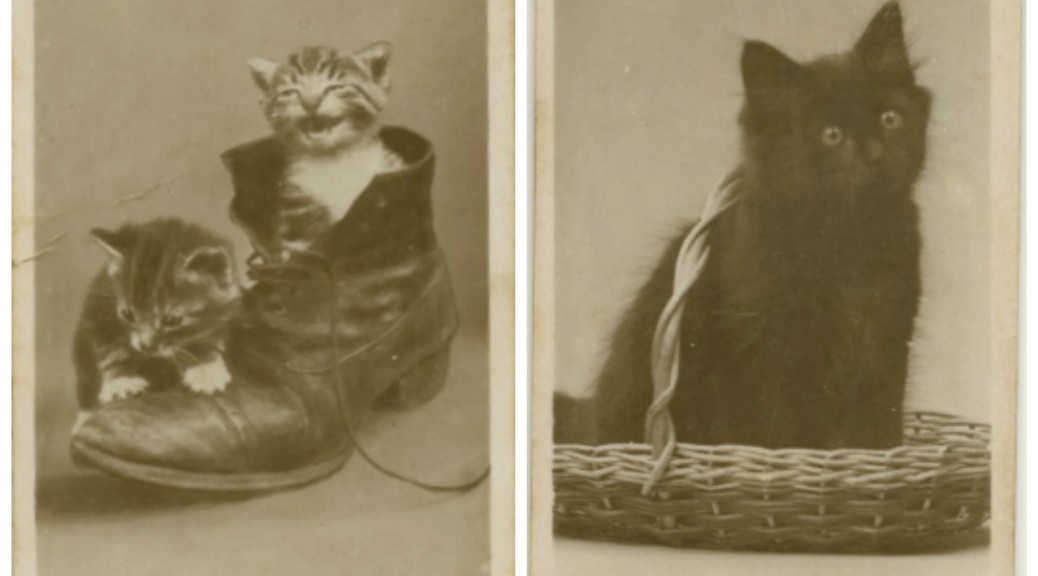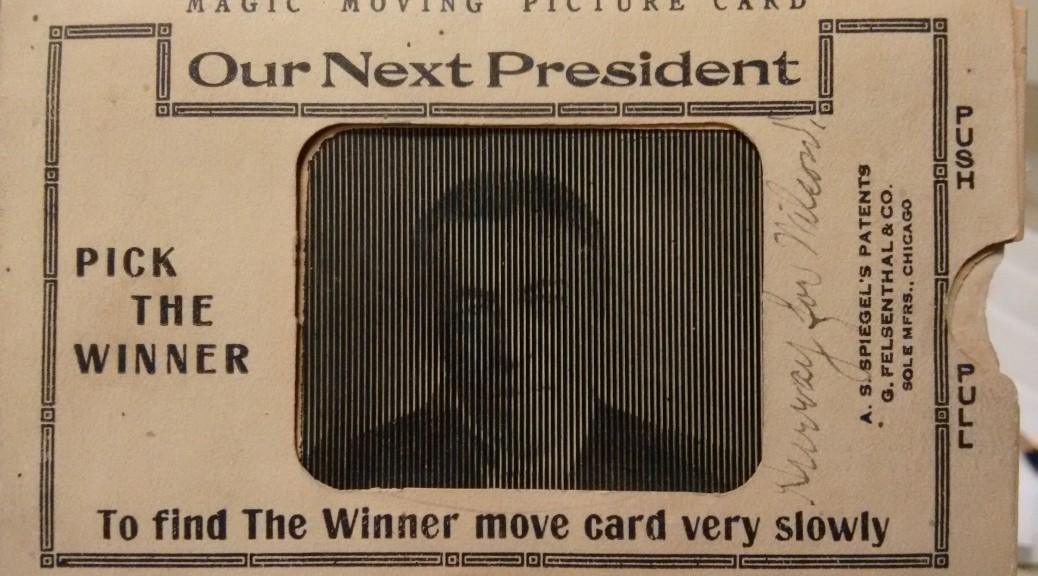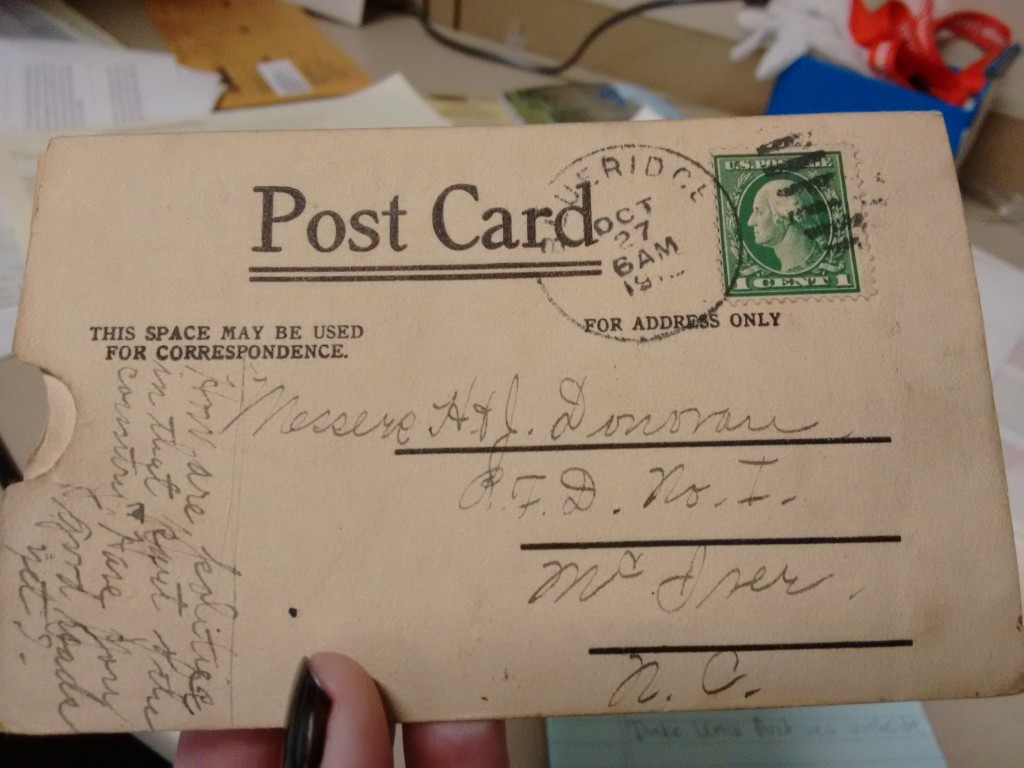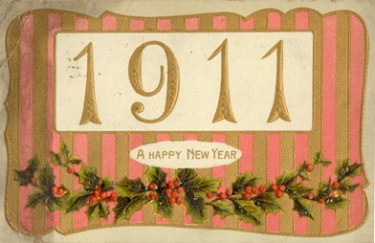I was delighted to find that one of our newest collections, the Terence Mitchell Collection of Tobacco Advertising, includes a run of Real Photographs, a series for the De Reszke cigarettes produced by J. Millhoff & Co. in England. These tiny cards feature animals posed in funny ways, doing adorable things, with cute captions. They are basically the tobacco card version of today’s Internet cat memes.

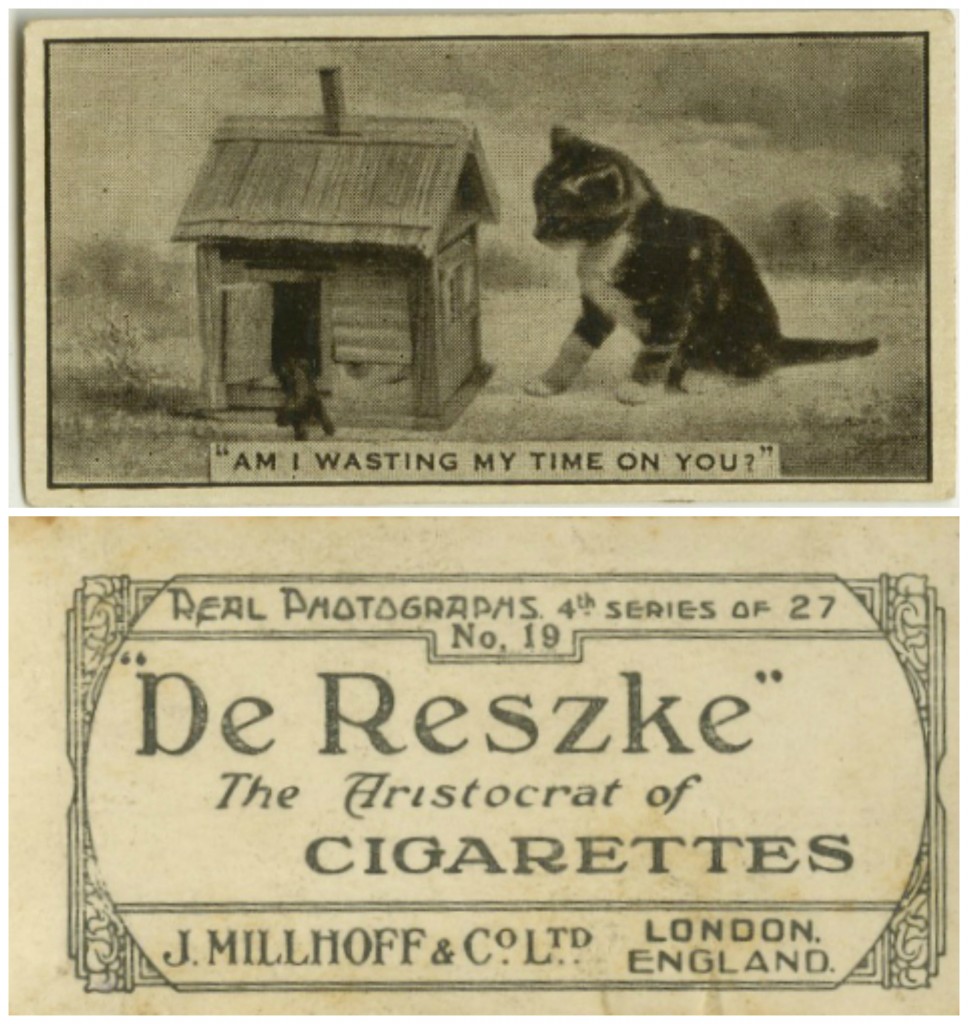
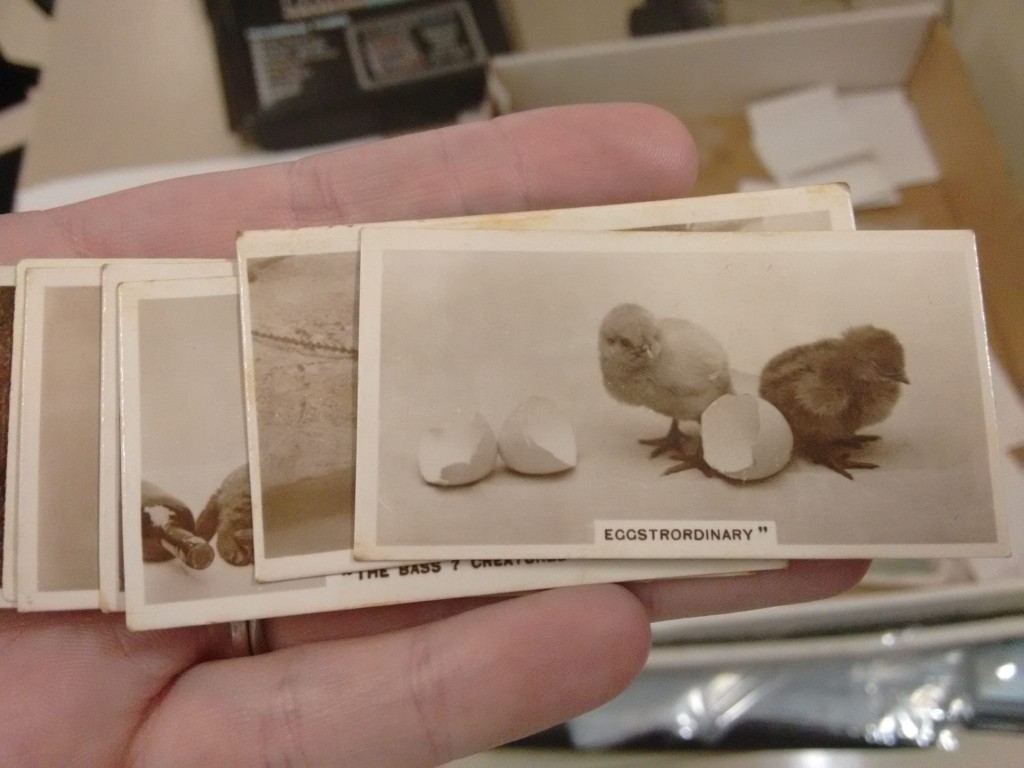 These tobacco cards gave me an excuse to look into the history of cat photography, particularly pictures of funny cats with captions. It turns out that posing cats in outfits is not a new trend, despite the persistent popularity of Internet memes like LOLcats and I Can Haz Cheezburger. Matthew Hussey’s 2012 article on A History of LOLcats explains that early photographers quickly discovered the marketability of cats, and began selling cat postcards and cartes de visite as early as 1870. Harry Pointer, the first known photographer of cats posed in silly ways, marketed his photos as The Brighton Cats – so named for his Brighton, England, photography studio. A later photographer who was even more commercially successful was American Harry Whittier Frees (1879-1953), whose postcards and children’s books featured animals, especially cats, doing funny things. Frees was so talented in posing and photographing his animals that some questioned their authenticity. In his preface to The Little Folks of Animal Land (1915), he explained his techniques, saying, “The difficulties encountered in posing kittens and puppies for pictures of this kind have been overcome only by the exercise of great patience and invariable kindness.” After their photoshoot, Frees writes, “my little models … enjoy nothing better than a frolic about the studio.” The Library of Congress now holds a collection of Frees’ photographs. You can view them here.
These tobacco cards gave me an excuse to look into the history of cat photography, particularly pictures of funny cats with captions. It turns out that posing cats in outfits is not a new trend, despite the persistent popularity of Internet memes like LOLcats and I Can Haz Cheezburger. Matthew Hussey’s 2012 article on A History of LOLcats explains that early photographers quickly discovered the marketability of cats, and began selling cat postcards and cartes de visite as early as 1870. Harry Pointer, the first known photographer of cats posed in silly ways, marketed his photos as The Brighton Cats – so named for his Brighton, England, photography studio. A later photographer who was even more commercially successful was American Harry Whittier Frees (1879-1953), whose postcards and children’s books featured animals, especially cats, doing funny things. Frees was so talented in posing and photographing his animals that some questioned their authenticity. In his preface to The Little Folks of Animal Land (1915), he explained his techniques, saying, “The difficulties encountered in posing kittens and puppies for pictures of this kind have been overcome only by the exercise of great patience and invariable kindness.” After their photoshoot, Frees writes, “my little models … enjoy nothing better than a frolic about the studio.” The Library of Congress now holds a collection of Frees’ photographs. You can view them here.
I think that the tobacco card industry jumped on the funny animal pose trend, which explains why the run featured here is the fourth of five runs of Real Photographs produced by J. Millhoff & Co. between 1931 and 1935. The fourth run that I found in the Mitchell Collection dates to 1932. (It could be that the other runs are also present! We are continuing to process these tobacco cards – there are several thousand of them.) It makes sense that tobacco companies would have realized the marketability of cute animals. They were also smart enough to recognize the popularity of baseball players and pretty actresses. (Check out the newly digitized W. Duke and Sons collection of tobacco cards.)
Looking at all of Harry Whittier Frees’ photographs online led to me wonder what sort of cute cat pictures we hold in Rubenstein. You’ll be pleased to know we have several in our vast Postcard Collection. Here are some of my favorites, all from the early 20th century.
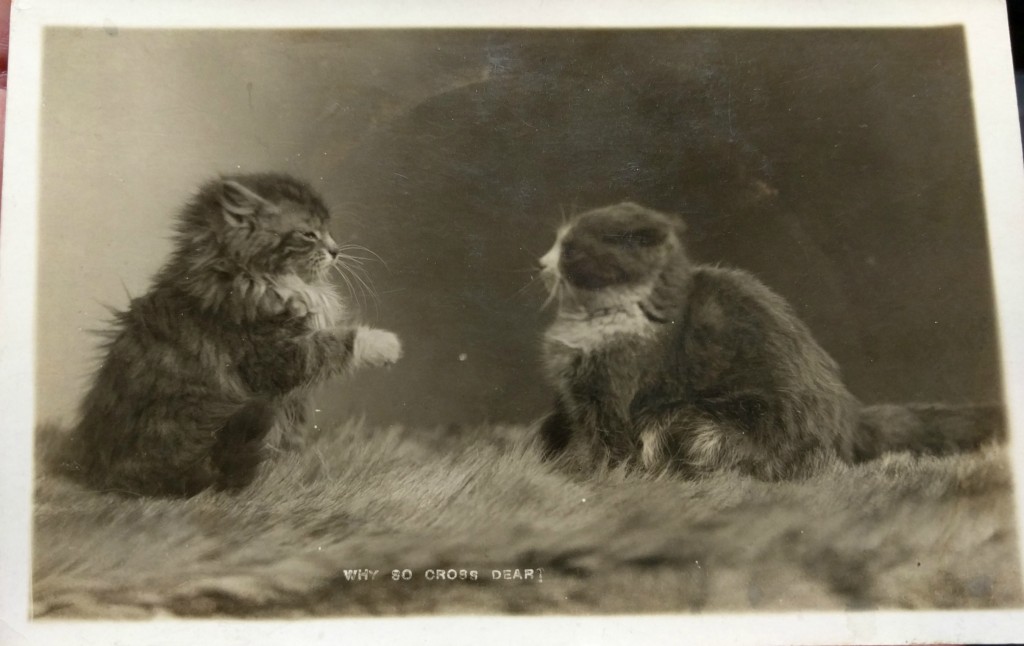
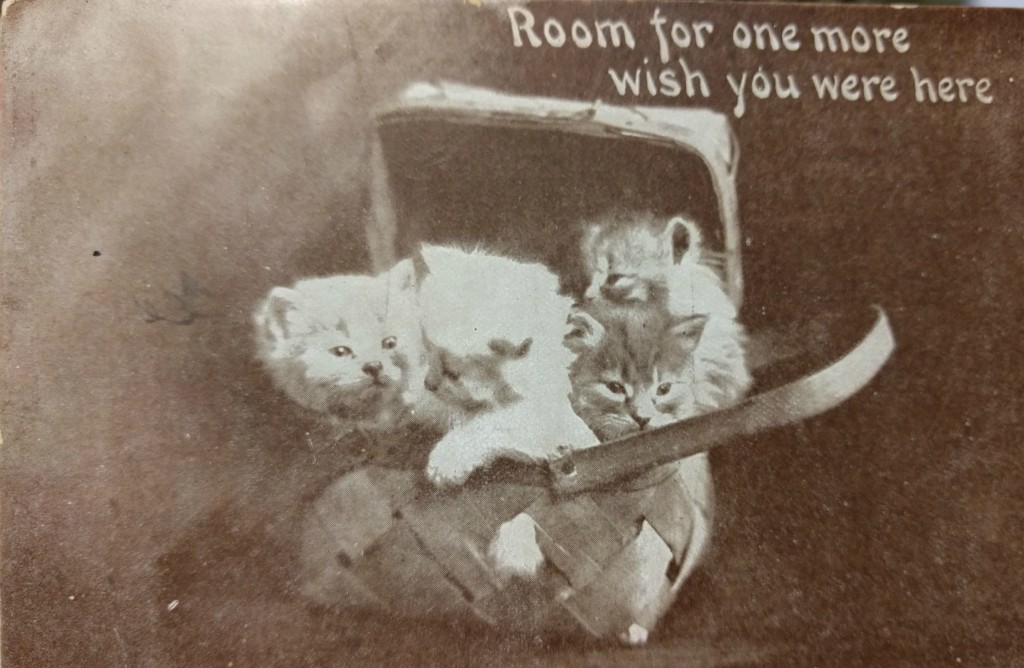

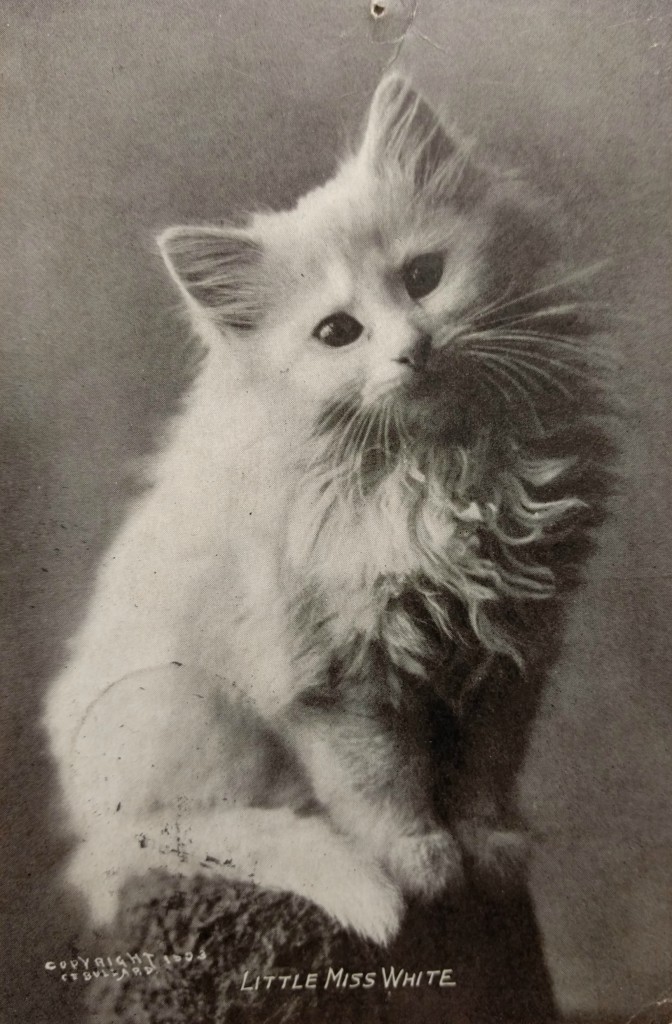
This last one is by Charles E. Bullard, another early twentieth century photographer who wisely copyrighted his cat pictures, and then worked with publishers to distribute them widely. This 1915 profile of Bullard in The American Magazine is truly hilarious and details his methods for capturing the perfect LOLcat. Here’s an excerpt:
“It is no easy job to photograph a cat. He is very unreasonable as to staying where he is put, and the only system is to use infinite patience. I have worked half a day trying to photograph a cat in a particular pose, and then had to give up in despair.”
I am on the lookout for other photographs of historical LOLcats, especially those held in Rubenstein collections. If you find some, let me know!
Post contributed by Meghan Lyon, Section Head Manuscript Processing.


